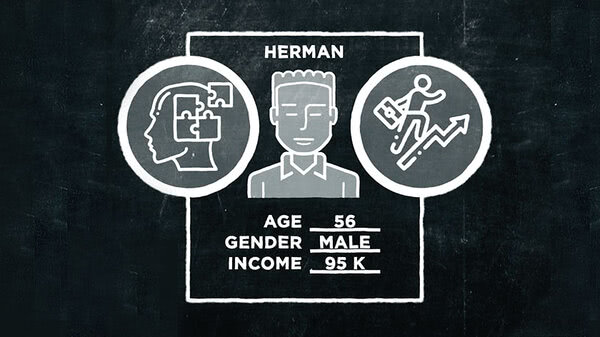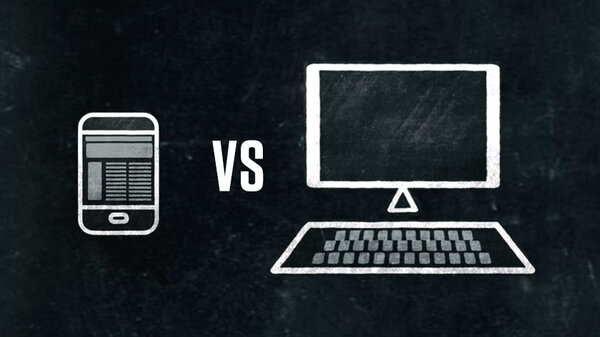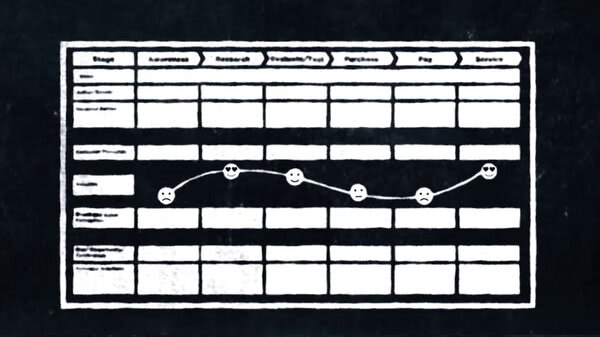In our last video, the question of whether your business might be better served by a mobile app or a mobile website came up. It's a question for our times, up there with cat versus dog, MAC versus PC, Spiderman versus Batman.
Okay. Hopefully it's a little less subjective than that. This video should help you make the right decision for your business when you're considering one or the other. So let's quickly review the differences.
If you want to add an app to your smartphone, it has to be downloaded from the internet or copied to your device's internal storage. After that, the app may or may not function without a network connection.
A calculator app probably won't need a network connection. However, many of the apps you use all the time get their data updates live from the internet.
Think of Facebook or LinkedIn. These apps may store some data on the device, but you won't get very far using them if you aren't refreshing frequently.
From a user perspective, a mobile website can potentially do most of the things that an app can do from inside the internet browser or app on your device. Generally, it needs a network connection at all times to work, as the app itself is stored on the server somewhere.
So if you want to check up on your LinkedIn account, you can either visit the linkedin.com website or get there via the app you downloaded from the app store. The difference between the two experiences isn't huge. All the same. There are advantages to each, so let's look at them.
Because the mobile app is made to work with a specific platform like Android or iOS, it usually has a look and feel that is common to those operating systems. Some users will be more at ease with an app than a website just because of that.
Apps can be built so that they don't require a connection to the internet for all of their functions.
So they're better for situations without a wireless connection. If the wireless connection is intermittent, an app can be designed so that it needs only a few minutes of network connection once a day to be brought up to date.
Now an app like Angry Birds doesn't need to be connected at all. You just download it and play the game. But a sales app may need to retrieve new materials and product information occasionally, and then securely store them inside the app itself.
Apps can often be customized to a particular user more than a website can. This helps users to feel more comfortable with the interface or save them steps in reaching their goals.
Many news apps, for example, can be set to send you only the stories that are relevant to the topics or geographical regions that you select.
If you're a sales rep, you can download just those sections of your company's catalog that you are responsible for promoting.
In general, apps are faster than websites. Sending data back and forth across the network takes far more time than it takes to get it right from the device.
App updates and push notifications can be sent to a user at any time, not just when she checks her email or logs into the website.
Finally, mobile apps can make greater use of a phone or tablet's internal hardware features, like the camera, microphone, accelerometer or other advanced features.
That said, a well-designed mobile website has its own list of advantages.
The first and perhaps the most important is that a website doesn't have to be found in an app store and downloaded in order to work.
You go to a web address and everything's already there, up and running.
There isn't that initial barrier to adoption. At one time, you were less likely to lose data from the cloud than you were to lose your cell phone and that was an advantage for a website.
Unless you were diligent about backing up. Today, most apps are constantly storing data to the cloud anyway, so it's probably a moot point.
Messages, documents, photos and data uploaded to a website or an embedded app can all be shared--either with other people or your own devices running on other platforms.
Look at Google Docs for example: Your whole team can view and contribute to a Google Doc from anywhere in the world with an internet connection--even at the same time.
Kind of looks like the mobile app has the mobile website beat, doesn't it? I mean, look at those lists. Six advantages versus two?
Oh wait, I forgot one. And it's a biggie. Cost.
A mobile website usually costs much less to develop than a mobile app doing much the same thing.
Some maintenance costs for websites are also lower. They don't have to be updated for every time a new screen size becomes standard, or an operating system is given a new release.
So, to sum up, an app has the potential to provide a richer experience to users because it can be more highly customized. It can employ a smartphone's embedded features, and because it can process data more quickly and reliably because of its freedom from the whims of the internet.
A website, on the other hand, has fewer barriers to adoption and is more widely accessible and easily shared. As long as your users are connected to the web.
A website is also less costly to create and maintain than several apps on different platforms.
Well, now you've got a decision to make, don't you? Oh, and just for the record, it's Batman all the way.















